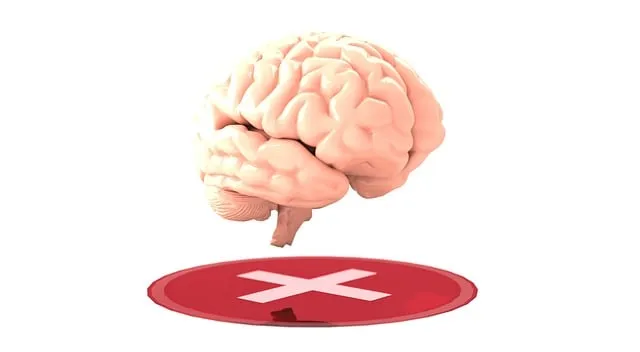Cultural competency is key in healthcare, especially in diverse communities like Castle Rock, where Kaiser provides mental health services. By understanding and respecting cultural differences, healthcare providers can improve patient outcomes, build stronger community relationships, and navigate ethical challenges. Kaiser's strong mental health framework in Castle Rock focuses on stigma reduction and emotional well-being promotion through tailored programs and comprehensive support. Robust cultural competency training, including workshops, case studies, and public awareness campaigns, enhances professionals' confidence and fosters an inclusive environment. This integrated approach ensures equitable access to mental health services for all residents in Castle Rock.
Cultural competency training is an essential component of modern healthcare, ensuring providers can deliver quality care to a diverse patient population. This article explores the significance of cultural competency in healthcare and why it’s crucial for all medical professionals. We delve into specific examples, such as Kaiser’s mental health services and their coverage in Castle Rock, showcasing the real-world impact of cultural sensitivity. Additionally, we provide practical strategies for implementing effective training programs to enhance cultural competency in medical practices.
Keywords: Castle Rock does Kaiser cover mental health
- Understanding Cultural Competency in Healthcare: Why It Matters and Who Needs It
- Kaiser's Mental Health Services and Their Coverage: A Closer Look at Castle Rock
- Implementing Effective Training Programs: Strategies for Improving Cultural Competency in Medical Practices
Understanding Cultural Competency in Healthcare: Why It Matters and Who Needs It

Cultural competency in healthcare refers to the ability of providers and organizations to understand, appreciate, and effectively interact with patients from diverse cultural backgrounds. It’s more than just treating people equally; it involves recognizing and respecting unique cultural beliefs, values, and practices that can influence health and healing. This is crucial because our society is becoming increasingly diverse, and healthcare systems must be equipped to meet the needs of all their patients.
In Castle Rock, where Kaiser covers mental health services, cultural competency training is essential for healthcare providers. It helps them improve patient outcomes, build stronger relationships with diverse communities, and navigate complex ethical dilemmas. By understanding cultural nuances, healthcare workers can better assess and address mental health issues, tailoring treatments to meet individual needs. This is particularly relevant in the context of stress management workshops offered by organizations like Kaiser, as culturally sensitive approaches can enhance the effectiveness of these interventions and promote emotional well-being through public awareness campaigns and effective promotion techniques.
Kaiser's Mental Health Services and Their Coverage: A Closer Look at Castle Rock

In terms of mental health services, Kaiser has established a robust framework aimed at mental illness stigma reduction efforts and emotional well-being promotion techniques. One notable location where this commitment is evident is Castle Rock, a region that has benefited from tailored programs designed to address local needs. Kaiser’s coverage in Castle Rock includes comprehensive mental health support, ensuring access to specialized professionals for various conditions.
The integration of these services within the community reflects Kaiser’s broader strategy, which involves risk management planning for mental health professionals. By offering accessible and diverse options, Kaiser aims to foster a supportive environment where individuals can seek help without barriers, ultimately contributing to improved overall emotional well-being. In light of this approach, it is evident that Kaiser prioritizes not only treating mental health conditions but also creating an inclusive setting that encourages open conversations around these issues.
Implementing Effective Training Programs: Strategies for Improving Cultural Competency in Medical Practices

Implementing effective cultural competency training programs is a multifaceted approach to enhancing care in medical practices, especially in diverse communities like Castle Rock. Strategies should include interactive workshops that foster open dialogue about racial biases, ethical considerations, and mental health awareness. Encouraging active participation through case studies and role-playing scenarios can boost confidence in handling sensitive issues, such as addressing mental health concerns, particularly when exploring if Kaiser covers mental health services in areas like Castle Rock.
Beyond traditional training methods, public awareness campaigns development, and mindfulness meditation practices can further reinforce cultural competency. These initiatives promote an environment where patients feel seen, heard, and respected, regardless of their background or beliefs. By integrating these strategies, medical practices can significantly improve patient outcomes, build stronger relationships with diverse communities, and ensure equitable access to quality healthcare.
Cultural competency training is an essential aspect of modern healthcare, especially with diverse populations seeking services. As discussed, mental health services, such as those offered by Kaiser in Castle Rock, highlight the need for culturally responsive care. By implementing effective training programs, medical practices can improve their cultural competency, ensuring all patients receive quality and respectful treatment, regardless of their background. Understanding and addressing these issues are crucial steps towards a more inclusive healthcare system that reflects the diverse communities it serves.






